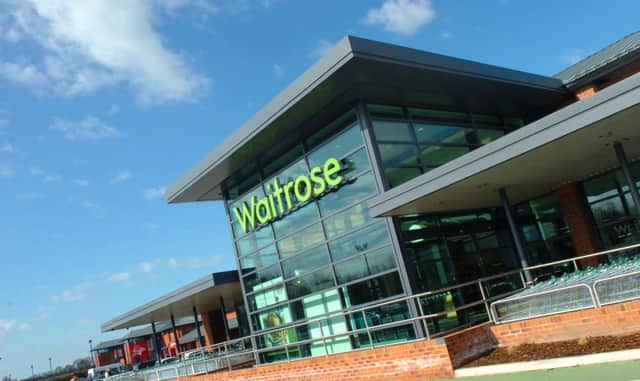‘Supermarkets face disaster in price war’


Mark Price, who is also deputy chairman of the John Lewis Partnership, told a national newspaper that price-cutting to keep pace with German discounters Aldi and Lidl is damaging consumer choice, and could even result in a company failure unless the biggest chains change their strategies.
Yesterday, Clive Black, the head of research at Shore Capital, told The Yorkshire Post that big retailers must shout about factors such as customer service, as well as price, in order to attract customers.
Advertisement
Hide AdAdvertisement
Hide AdMr Price told the Mail on Sunday: “Supermarkets are saying, ‘If we drop our prices it’s all going to be OK again.’ But the reality is people don’t eat more food because you drop your prices. If everybody keeps dropping their prices, it’s a zero sum game.”
‘My instinct is that there will be a moment when retailers will have to say “We need to find a better way of attracting customers”. Otherwise the moves down will create real difficulty for one or two players.’
Mr Price said the rapid responses of Tesco, Leeds-based Asda, Bradford-based Morrisons and Sainsbury’s to each other’s price-cutting are creating only “fractional differences” in the performance of the best and worst.
Malcolm Walker, the Yorkshire-born chairman and chief executive of frozen food specialist Iceland, told the Mail on Sunday that he agreed with Mr Price, adding: “Price isn’t a weapon any more. It’s your entry into the game.”
Advertisement
Hide AdAdvertisement
Hide AdAccording to Mr Black, the German discounters have emerged in Britain because the incumbent superstore groups took their customers for granted.
He added: “Regaining the trust, respect and custom is an expensive exercise involving material and necessary price cuts. While doing so, a balance needs to be struck for the sake of choice and the viability of supply chains. The superstores need, therefore, to extol what is strong about their offers away from pure price; choice, service and ease.
“If such non-price factors are not effectively marketed, against a narrower price differential, to the point that trading improves then shoppers may need to be careful what they wish for; the German grocery market is a very limited, austere and miserable place compared to the UK.”
Britain’s four biggest grocers, Tesco, Asda, Sainsbury’s and Morrisons, will lose four per cent of their market share by 2020 as discounters Aldi and Lidl continue to expand, according to a Moody’s forecast published last month.
Advertisement
Hide AdAdvertisement
Hide AdThe ratings agency also said the big four grocers’ profit margins are unlikely to recover over the next 12 to 18 months, amid falling like-for-like sales and price cuts as they battle to stem the loss of customers.
Moody’s said those firms could see a gradual recovery from 2016/17, benefiting from Britain’s continued economic growth, as well as their sharper offers and improved stores and customer service. The agency noted that only Asda, which is part of US retailer Wal-Mart, had the financial capacity among the big four to engage in many more rounds of price cuts. It added consolidation among the big four is also very unlikely given their already significant market shares.
A Morrisons spokesman declined to comment on Mr Price’s comments yesterday. There was brighter news for Morrisons last week. An influential study found that customers are returning to Morrisons following a complete overhaul under new management.
The grocer has seen its first market share gains since 2011, and was the only one of the big four to see positive sales growth, according to the latest Kantar Worldpanel data. Asda was the worst performer, but the Leeds-based grocer has vowed not to resort to giveaways, which have boosted sales at its rivals at the cost of profits.
Advertisement
Hide AdAdvertisement
Hide AdMorrisons was boosted by its successful entry into online shopping and sales over the 12 weeks to June 21 rose 0.6 per cent, increasing its market share to 11.0 per cent from 10.9 per cent a year ago. Kantar said that although this is a modest increase, it’s the first since December 2011.